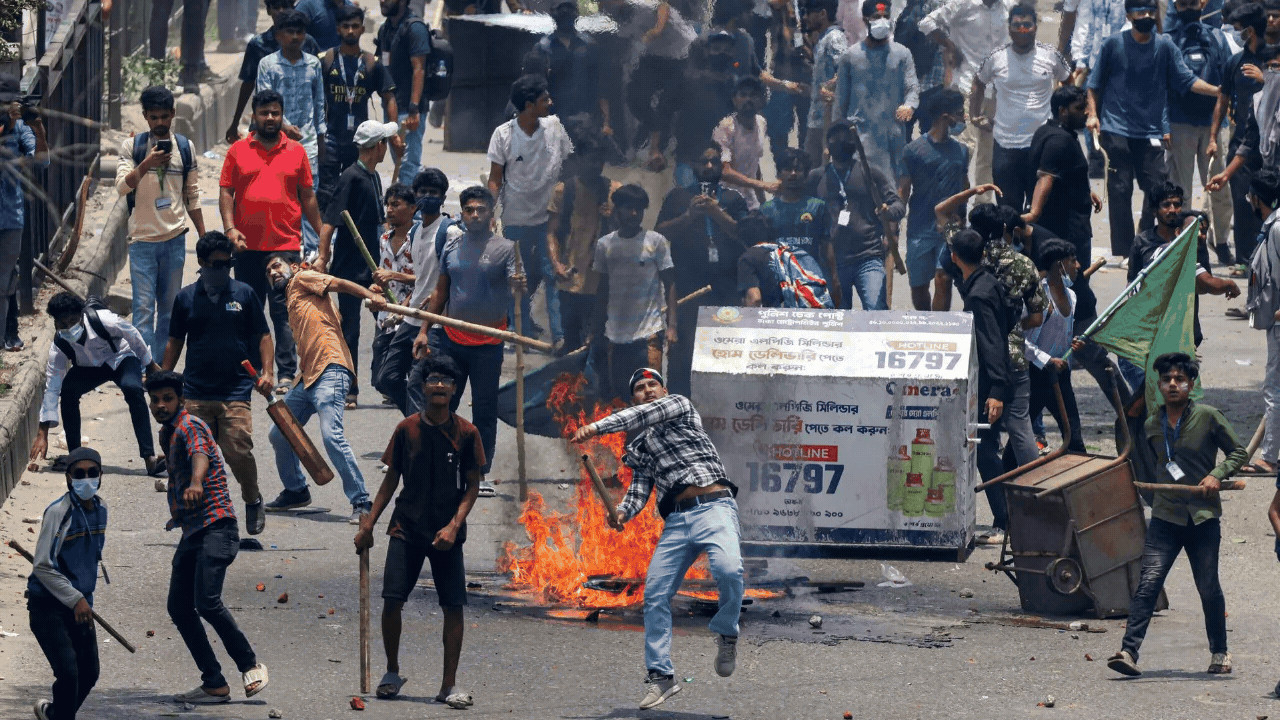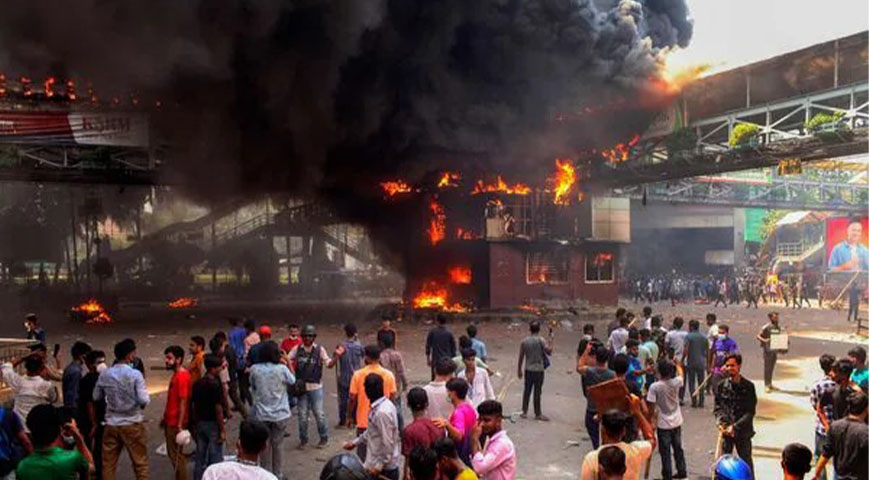174 people, including several police officers, have died with nearly 1,200 arrests as protests over government job quotas turned violent.
The unrest, sparked by discontent over politicized admission quotas for government jobs, has led to some of the worst turmoil during Prime Minister Sheikh Hasina's tenure.

A curfew was enforced, and soldiers were deployed nationwide. An internet blackout further disrupted daily life, restricting information flow. The Supreme Court reduced the reserved job quotas for groups such as descendants of the 1971 liberation war "freedom fighters."
The student-led protests paused for 48 hours after the Supreme Court's decision. However, the military presence in Dhaka remained heavy, with bunkers and blocked roads. Despite the curfew, more people ventured out, including rickshaw drivers like Hanif, who said, "If I don't do it, my family will go hungry."
Did you read this?
Leaders of Students Against Discrimination, the leading protest group, reported abductions and missing members. Nobel Peace Prize laureate Muhammad Yunus criticized the government's response, urging global leaders to help end the violence. He claimed hospitals were concealing the true number of casualties.
Diplomats also questioned the government's actions. US Ambassador Peter Haas criticized a biased video shown at a diplomatic briefing. Government officials blamed protesters and opposition parties for the unrest.

Police chiefs reported numerous arrests: 200 in Narayanganj and Narsingdi, 80 in Bogra, 168 in Gazipur, 75 in Rangpur, and 60 in Barisal. In Dhaka's rural and industrial areas, 80 were arrested, adding to the capital's total of 532, reaching 1,195 nationwide.
The quota system's reintroduction in June, after being halted since 2018, angered graduates amid a severe job crisis, with 18 million young people unemployed. The Supreme Court reduced reserved jobs from 56% to 7%, but protests continued as the "freedom fighter" category remained.
Critics argue the quota benefits Hasina's Awami League loyalists, with opponents accusing the government of manipulating the judiciary. Hasina, in power since 2009, won a fourth consecutive term in January's election, criticized for lacking genuine opposition.









